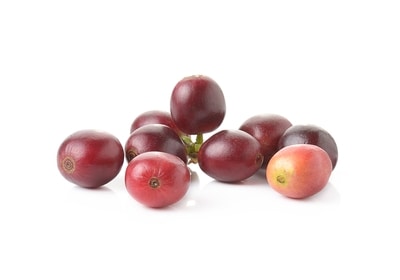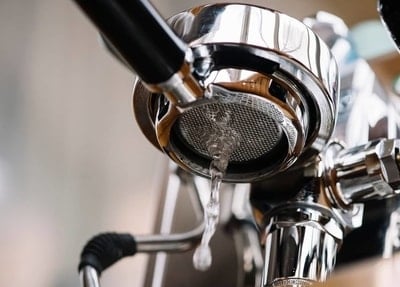The Complete Guide to Cascara Syrup

Cascara has quickly become a superstar in recent years, being seen more and more on coffee shop menus around the world. But the rising star is cascara syrup, which has been made famous by Starbucks. But what is cascara syrup exactly?
Cascara syrup is a mixture of brewed cascara and cane sugar that combines to make a sweet and sticky syrup. It has flavours such as raisins and berries with floral notes. Cascara syrup is an excellent addition to both hot and cold drinks, as well as for topping on sweet desserts such as pancakes or waffles.
Cascara syrup is really simple to make, and we suggest that you give it a try at home! Read on for our incredibly easy cascara syrup recipe.
What is cascara syrup?
Cascara syrup has risen to fame recently because of Starbucks’ introduction of their Cascara Latte in 2017.
In order to make cascara syrup, you first need to brew some cascara. Cascara is made from the skins of the coffee fruit, which is a by-product of coffee processing.

The ripe fruit of the coffee plant looks a lot like a cherry and because of this, they have come to be known as coffee cherries.
The fruit flesh of coffee cherries is edible and has a pleasing sweetness and refreshing acidity.
When coffee cherries are picked, the outer skin and pulp flesh have to be removed in order to extract the coffee beans housed inside. Coffee beans are not a type of legume; they’re the seeds of the coffee fruit.

Whilst most farms dispose of the cherry skins or use them as fertilizer on the farms, some farmers choose to dry the skins.
Once the skins have dried sufficiently, they come to be known as cascara. Cascara is the Spanish word (cáscara) for husk, peel or skin.
These dried coffee skins can be infused in water to create a deliciously fruity infusion.
This fruity infusion can then be combined with sugar. The mixture is heated and boiled for several minutes, which results in a glossy syrup.
Is cascara coffee or tea?
Cascara cannot be described as coffee because coffee is made using coffee beans. Because of this, many people call it cascara cherry tea.
But this is also inaccurate as the coffee cherry is from the coffee plant (Coffea genus) and not the tea plant (Camellia sinensis). Therefore, the best descriptor for brewed cascara is a fruit tisane.
Cascara made from coffee cherry skins should not be confused with Cascara sagrada, which is a natural laxative. Cascara sagrada is from the genus Rhamnus purshiana, a species of buckthorn native to North America.
What does cascara syrup taste like?
Cascara tastes nothing like roasted coffee because it’s made from the flesh of the fruit and not the bean. Its flavour profile varies hugely depending on the variety of coffee plant from which it comes.
Once infused in water, the taste of brewed cascara may contain notes from plum and peach to dates and prunes to rosehip and elderflower.
Cascara has a deep taste that’s caused by the drying process, similar to when a grape is dried and becomes a raisin.
As you can imagine, this is a delightfully fragrant drink, which can be enjoyed either hot or cold.
Combining the cascara tisane with sugar to create a syrup further emphasizes the beautiful fruit flavours. Once the syrup has cooled, it has the texture of runny honey.

What can cascara syrup be used for?
Cascara syrup isn’t just for adding to your coffee. Cascara is so incredibly versatile that it can be added to a whole host of beverages:
- as a base for hot drinks to add sweetness
- as a cordial for mixing with cold drinks (delicious with sparkling water)
- as a base for cocktails
And it doesn’t have to stop at drinks. Cascara syrup’s sweetness is excellent with desserts too:
- pancakes
- waffles
- ice cream
- filling doughnuts
If you don’t fancy making your own syrup, then you can buy ready-made syrups online. One online retailer stocks ready-made cascara syrup starting from $6.95 for 150ml (5oz).
However, I would avoid buying ready-made as chances are the cascara is from low-grade coffee. This means that it will not be of very good quality, lacking the vital fruity flavours and sweetness.
I highly recommend making your own cascara syrup as that way you can ensure you have the best quality ingredients.
To save you the effort of searching around, we have a list of online vendors that sell only sell great-quality cascara, which is listed at the end of this article.
Don’t buy from the likes of Amazon as chances are the cascara will be from low-grade coffee cherries.
How to make cascara syrup
For those that do want to make their own cascara syrup, here is a very simple recipe for you to try at home.
Equipment
- Saucepan
- Sieve
- Sterilised jar (for decanting)
Method
Step 1: Bring one and a half cups of water to the boil in a saucepan.
Step 2: Add half a cup of cascara, stir gently and reduce heat to a simmer.
Step 3: Simmer for 4 minutes. Strain the liquid and discard the cascara.
Step 4: Add the liquid back to the saucepan. Add one cup of sugar. Bring to the boil and simmer until thickened slightly, ensuring all the sugar has dissolved.
Step 5: Leave to cool. Store in a jar and keep refrigerated.
Cascara syrup calories & nutrition
Calories in cascara syrup
| Per 100ml | Per cup | Per fl oz | Per teaspoon |
|---|---|---|---|
| 163 | 386 | 49 | 8 |
The majority of the calories come from the sugar as brewed cascara tisane only contains 7 calories per 100ml (3.38fl oz).
Nutritional guide for cascara syrup
| Component | Per 100ml | Per fl oz |
|---|---|---|
| Energy, kJ | 680 | 207 |
| Energy, kcal | 163 | 49 |
| Protein, g | 0.3 | 0.1 |
| Fat, g | < 0.1 | < 0.1 |
| Carbohydrates, g | 156 | 47 |
| Sugar, g | 154 | 46 |
| Dietary fibre, g | <0.5 | < 0.2 |
| Sodium, mg | < 5 | < 2 |
| Caffeine, mg | 10 | 3 |
Nutritional information for whole cascara, unprepared per 100g (3.5oz)
| Component | Percentage of recommended daily intake |
|---|---|
| Biotin | 50 |
| Vitamin E | 50 |
| Vitamin B1 | 10 |
| Vitamin B2 | 10 |
| Niacin | 13 |
| Pantothenic Acid | 18 |
| Component | Grams per 100g (3.5oz) |
|---|---|
| Fibre | 35 |
| Fructose | 19.6 |
| Glucose | 16 |
| Protein | 6.15 |
| Caffeine | 0.2 |
| Fat | 0.85 |
Caffeine in prepared cascara tisane
| Beverage | Caffeine per 100ml (3.38fl oz) |
|---|---|
| Espresso | 180mg |
| Turkish coffee | 84mg |
| Filter coffee | 40mg |
| Red Bull | 32mg |
| Instant coffee | 26mg |
| Cascara tisane | 16mg |
| Coca-Cola | 10mg |
Cascara has a lot less caffeine than people have been led to believe over the last few years.
A test conducted by Anette Moldvaer of Square Mile coffee roasters came back with the surprising result that cascara only contains around 10 – 25% of the caffeine that coffee beans have.
Where to buy cascara
In order to make delicious cascara syrup, you need to buy some good quality cascara.
Unfortunately, cascara is no longer for sale in the UK and Europe due to the product not having any tight regulations around its sale. Work is being done to get cascara back on sale, so we hope that happens very soon.
Meanwhile, here is a list of online coffee roasters that also sell cascara in the US, Canada, Australia and New Zealand.
As coffee and cascara are seasonal products with new ranges coming in all the time, we have linked to the homepage because of the likelihood that the links to individual products will change as new arrivals come in.
USA
Canada
Australia
New Zealand
Legality of cascara in the UK and Europe
If you live in the UK or Europe, you may have noticed that cascara has disappeared. This is due to a lack of tight regulations surrounding its sale and not because it’s harmful. To quote James Hoffmann of Square Mile Coffee:
“It’s not illegal, it’s just not legal yet.”
Cascara is not illegal as such as the import legislation around coffee actually covers husks and skins. This is so that coffee companies can import very low-grade coffee that inevitably includes coffee cherries amongst the batches of green beans.
However, the sale of cascara as a single product does not yet have any EU protection. It’s classed as a novel food.
Novel Food is defined as food that had not been consumed to a significant degree by humans in the EU before 15 May 1997.
– European Commission
James Hoffmann is working with Klaus Thomsen of The Coffee Collective in Denmark to get cascara approved for sale in Europe. The jury’s out as to how long this could take, so in the meantime, we’ll just have to make do drinking great coffee.







